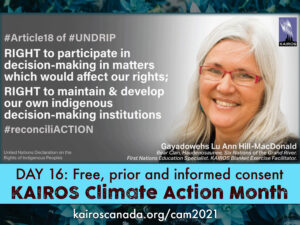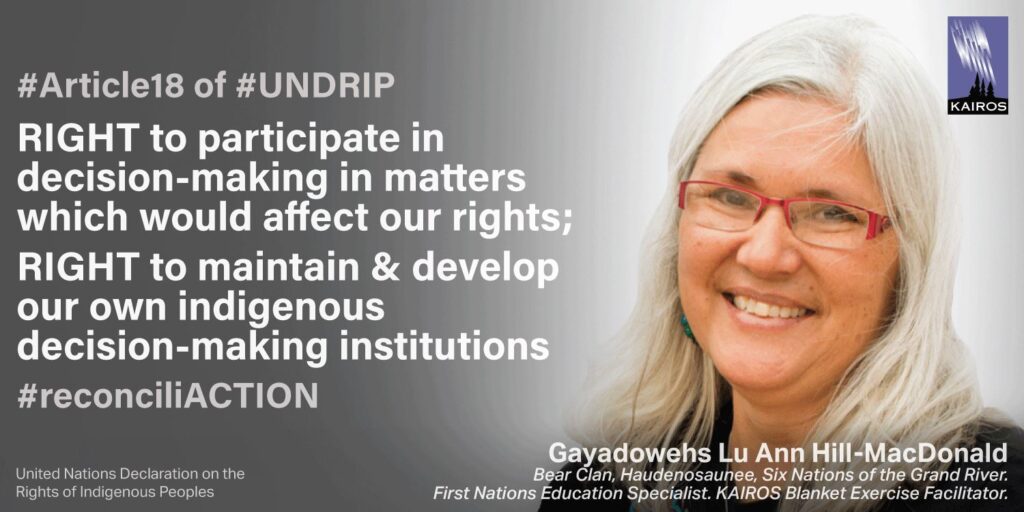Free, prior and informed consent #KAIROSClimateAction

Free, prior and informed consent (FPIC) is an inherent right of Indigenous peoples and helps ensure their survival, dignity and well-being. The United Nations Declaration on the Rights of Indigenous Peoples (UN Declaration) affirms FPIC and provides a new roadmap for interactions between nation states and Indigenous peoples.
A common misconception claims that provisions within the UN Declaration on free, prior and informed consent would create an absolute veto over resource development projects. However, the Declaration never uses the word veto. The resource Implementing the UN Declaration: Myths and Misconceptionsfrom Faith in the Declaration unpacks this misconception and others:
The Declaration’s FPIC provisions are an expression of the inherent right to self-determination. FPIC is also intended to provide a rigorous safeguard against State decision-making processes that ignore the consequences for the health, well-being and cultural integrity of Indigenous nations, communities, families and individuals. The necessity for such provisions should not be controversial in Canada, given the public acknowledgement of the tragic harms that have been repeatedly inflicted on Indigenous peoples through decisions imposed against their wishes. (Read more on Page 3 of Implementing the UN Declaration: Myths and Misconceptions)
The disregard of FPIC in pipeline and fossil fuel development projects in Canada continues to undermine climate justice. The lack of FPIC not only violates Indigenous rights but puts communities and ecosystems at risk. While FPIC has not been achieved in several fossil fuel development projects, Eriel Deranger, from Indigenous Climate Action points out FPIC was also not sought or obtained in the development of Canada’s climate policy planning and frameworks. She writes,
Article 18 of UNDRIP states that, “Indigenous peoples have the right to participate in decision-making in matters which would affect their rights, through representatives chosen by themselves in accordance with their own procedures, as well as to maintain and develop their own Indigenous decision-making institutions.” However, Indigenous peoples were considered another stakeholder in climate discussions and not decision-makers in the process.
As Canada moves towards implementation of the UN Declaration, implementation of FPIC that builds respectful nation-nation and Indigenous-Crown relationships is needed.
Learn more about FPIC:









